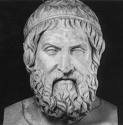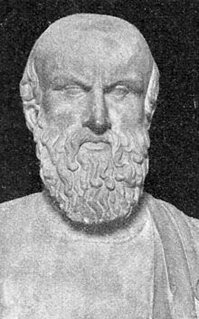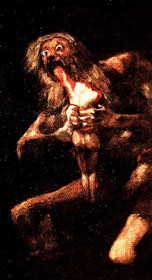week 3
Monday, January 29
Epiphany: To show forth something higher, comes from the Greek word 'phanos'
theophany: the showing forth of the divine
eureka: a greek word, meaning 'to find'
mnemosyne: the mother of the muse's, meaning 'memory,' who 'consorted' with Zeus to create them
Nabokov: a brilliant Russan author who wrote 'Speak Memory' and 'Lolita'
Epic=long and pointed. ex) Homer's 'Oddity' (Odyssey), and 'Idiot' (Iliad), Virgil's 'Aeneid'
Drama= usually a tragity, short and focused. ex) Plato's 'Antigone,' and Critias' 'Euripides'
4 Canonical dramatists:
1) Sophocles
 2) Euripides
2) Euripides  3) Aristophanes
3) Aristophanes 
4) Aeschylus

These four men define classical literature!
A few other types of literature are:
- Lyric Poetry: like Pendar
- Hymns: Like the Homeric Hymns
- Theogony: 'written' by Hesiod, and leads to the emergance of Zeus, and the birth of the gods. Root word= 'Gon' which means birth
A few name meanings:
- Theodore: 'theo' means God + 'dore' means gift= God's gift
- Michael: 'One who is like God'
- Antigone: 'anti' means against + 'gone' means birth (womb)= against birth
- Brittini: means 'strong and industrious'
Demeter is a 'root metaphor' for many things, some of which are:
- the beginning of love
- the beginning of marriage
- of biology: in the beginning there were mothers and daughters, and then men came and messed everything up!
Saturn Devouring his Children:

pretty disgusting if you ask me!
"Men are like microwave ovens. Useful, but not necessary!"
Rapunzel (this is the Grimm's version discussed in class)
Cereal: comes from the roman goddess Ceres (goddess of the grain)
etiology: Explaination of why we have something ex) the story of Demeter is why we have seasons
narcissus: 'the act of looking' "As Pausanias also notes, yet another tale is that the narcissus flower was created to entice Demeter's daughter Perciphane away from her companions to enable Hades to abduct her." ~Wiki.com


0 Comments:
Post a Comment
<< Home